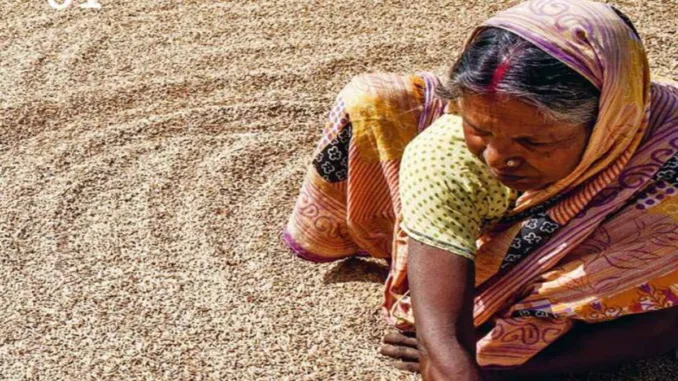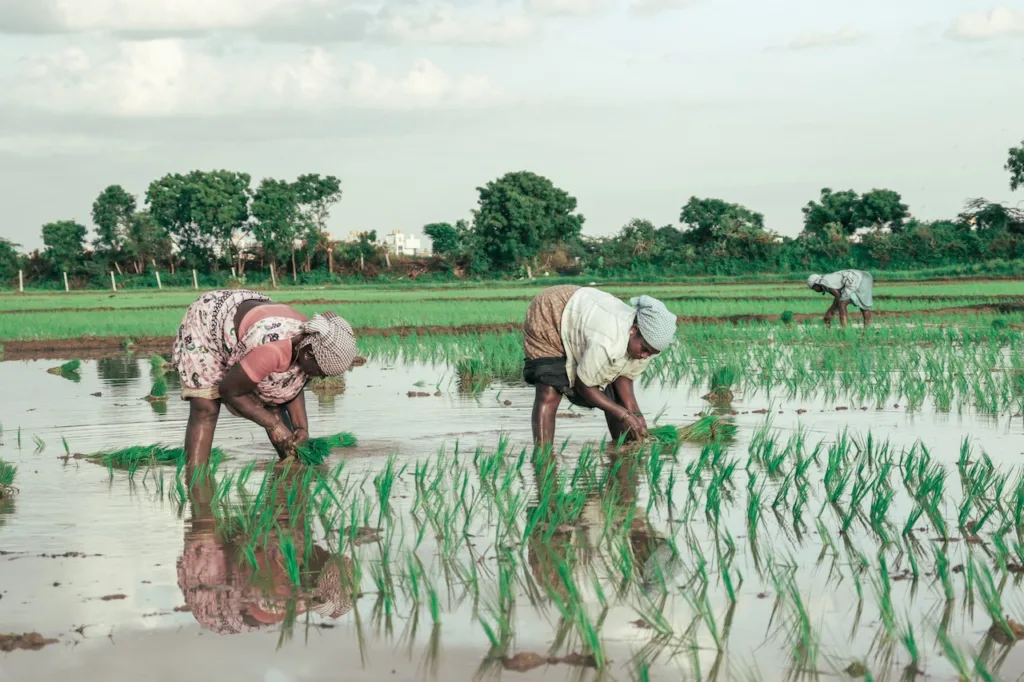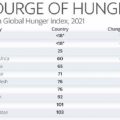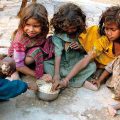
India was ranked 111th out of 125 countries in the Global Hunger Index (GHI) 2023, a move that sparked debate and prompted concerns about the index’s reliability. The ranking has been fiercely contested by the Indian government, which calls it “erroneous” and claims there was “malafide intent” behind it. India’s GHI ranking of 107th out of 121 nations in 2022 showed that the country’s hunger issue was getting worse.
India is categorized as having a “serious” hunger condition with a GHI score of 28.7. Remarkably, neighboring nations including Bangladesh, Nepal, Sri Lanka, Pakistan, and India performed better, placing 102nd, 81st, 69th, and 60th, respectively. India’s GHI score, however, is marginally higher than that of South Asia and Africa south of the Sahara, both of which have 27.
Important data figures show that India has a 16.6% undernourishment rate, a 3.1% under-five mortality rate, and a startling 58.1% prevalence of anemia among women aged 15 to 24. The most alarming statistic is the child wasting rate, which is the highest in the world at 18.7% and is a sign of acute undernutrition.
The GHI has drawn criticism from the Indian government, which questions its intentions and points out methodological flaws. They contend that three of the four indicators, which center on the health of youngsters, might not accurately reflect the whole community. Additionally, the government contests the validity of the “Proportion of Undernourished Population” statistic, which is based on a skewed viewpoint. The government claims that in sharp contrast to the GHI’s number of 18.7%, its data from the Poshan Tracker routinely shows child waste rates below 7.2%.
Moreover, the government highlights that wasting and stunting are not just the product of hunger but also several other variables. They also contend that there is insufficient data to support the hypothesis linking famine and child mortality.

The 2023 GHI, which has a score of 18.3, only barely less than the 19.1 number from 2015, reveals a worrying stagnation in worldwide efforts to reduce hunger. Globally, the number of undernourished people has increased from 572 million to over 735 million since 2017. Climate change, international conflicts, economic shocks, the ongoing pandemic, and geopolitical events like the confrontation between Russia and Ukraine are some of the reasons for this lack of development. Many countries’ attempts to reduce hunger have been hampered by these difficulties, which have made social and economic inequality worse.
Implications: The debate over India’s GHI ranking brings attention to the necessity of tackling hunger and malnutrition from a broad and nuanced perspective. It highlights the intricacy of the variables causing these problems as well as the limitations of particular measurements. The Indian government disputes the GHI rating, but it also stresses how critical it is to address hunger and malnutrition, especially in the youth. .. The Indian government disputes the GHI rating, but it also stresses how critical it is to address hunger and malnutrition, especially in the youth. The alarming global trends in the decline of hunger highlight the necessity of persistent measures to counteract this ubiquitous problem and the significance of tackling its underlying causes, such as poverty, food insecurity, and healthcare access.




